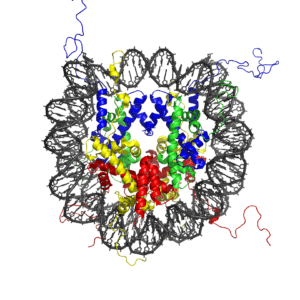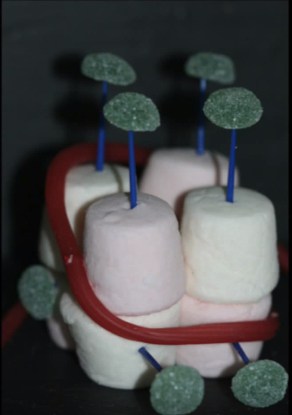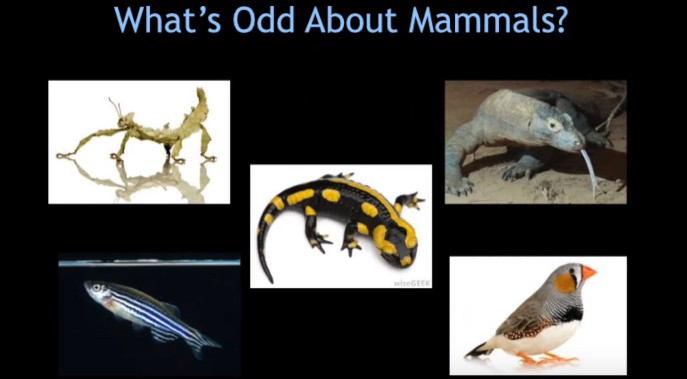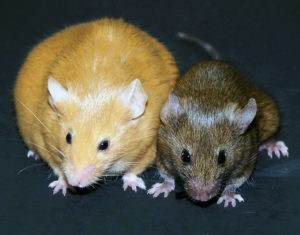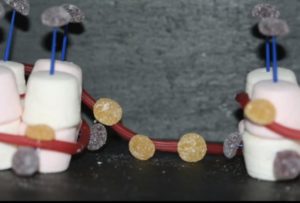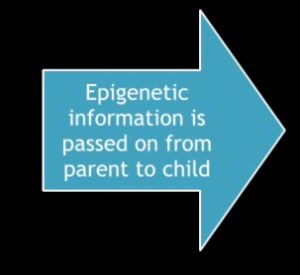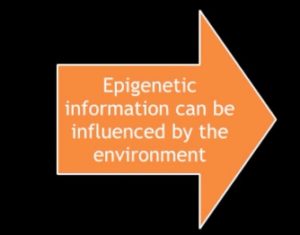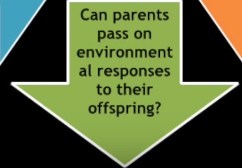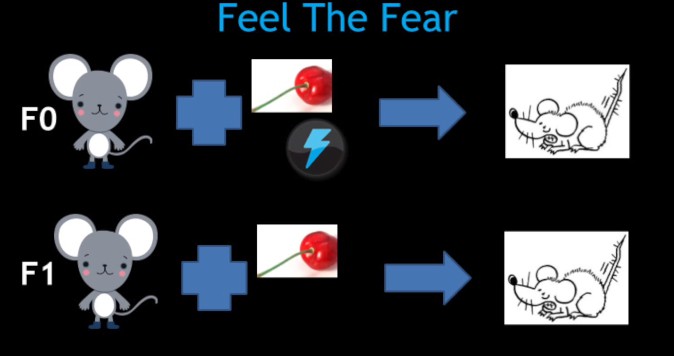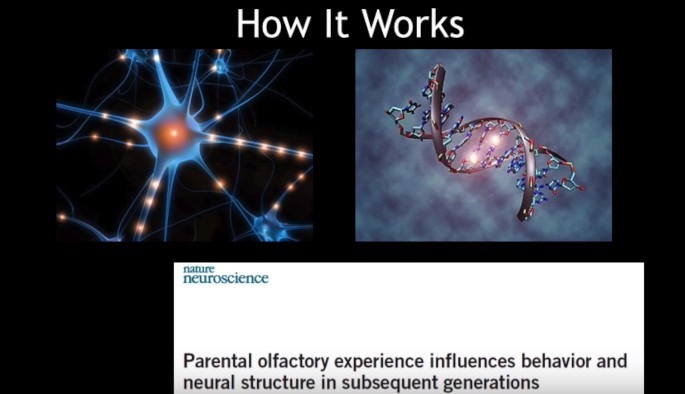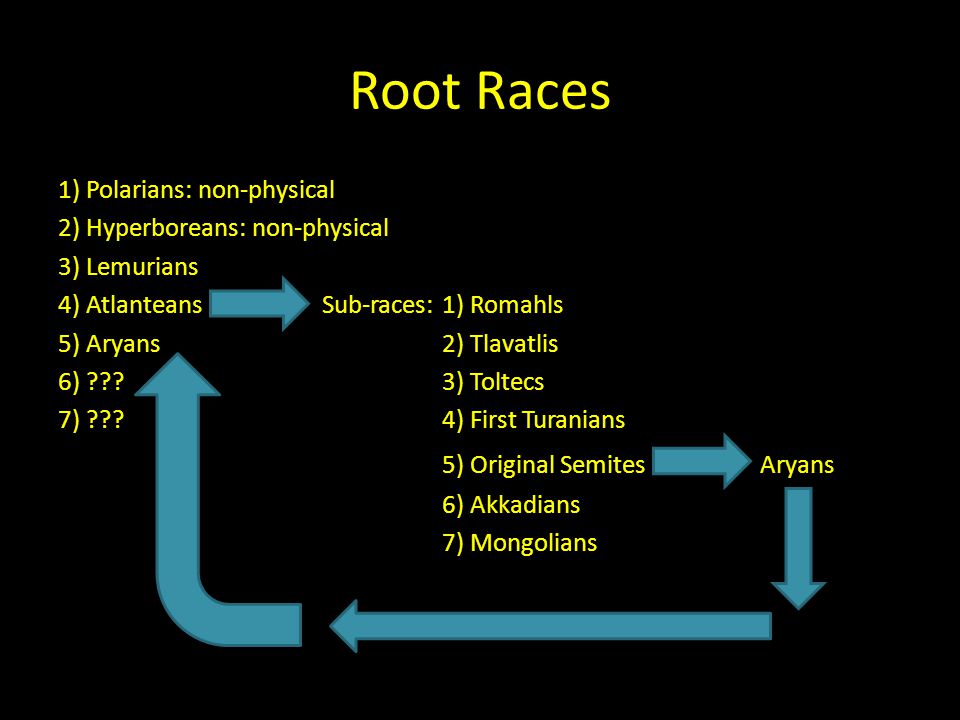Epigenetic Modification Introduction
In this article we will discuss the new field of epigenetic modification and then pose some questions as to its relevance in the spiritual path of the initiate.
DNA is a vitally important starting point for life, but it’s how it’s used by cells and organisms that is really important. Epigenetics is a rapidly moving field that has transformed our understanding of how one set of genes can create the uniqueness that is each of us. It’s also leading scientists into unexpected and exciting areas such as new ways to treat disease, understand drug addiction or unravel the lifelong consequences of early childhood trauma.
Epi = derived from the Greek meaning ‘ in addition to’. This implies that epigenetics about something in addition to just the genetic code which explains the variations we see in nature.
For instance the fly and the maggot have exactly the same gene sequence but look very different. Also laboratory experiments on genetically identical mice kept in the same conditions still produce variations in the mice. This is called ‘intangible variation’
DNA in a double helix (grey) is wrapped around 8 protein molecules (coloured) within the cell and is not laid out in a single strand. Each of the protein molecules is shaped like a fist as shown in the image below:
As we can see from the diagram there are ‘threads’ that extend out from the DNA from the protein molecules in the centre. Just getting to this stage has cost millions in research in terms of developing equipment necessary to photograph to this level of detail.
How Epigenetics Works
To make this easier to understand we can use:
- Red lacy liquorice to represent DNA
- Marsh Mellow to represent the protein molecules
- Cocktail sticks to represent the extensions from the protein molecules.
So in a cell we have this repeated pattern with the DNA wrapping around the protein molecules millions of times within a cell.
Now we will apply the above to an example of adaptation in humans. In someone who consumes alcohol for instance, there becomes a tolerance to the amount of alcohol over time and so we have to drink more to get to the same effect. This happens because the relevant genes in the liver become MODIFIED on the extensions. These modifications are represented by jelly tots on the extensions (cocktail sticks).These modifications (jelly tots) make it EASIER for these genes (which break down alcohol) to be switched on, so that now the body has adapted to break down alcohol FASTER with these more efficient gene expressions.
If this person subsequently stops drinking then the genes are modified again to switch these genes off again (purple jelly tots).
So this is how genes switch on and off although in reality they can be anywhere in between and so have degrees of off and on.
Modifications can also occur to the DNA itself (yellow jelly tots).
These may force the gene to switch off if they occur in high numbers as they cause crunching up of the genes :
When this crunching up happens this can result in this gene being permanently switched off.
To put this into another perspective, the genes in our brain do not produce haemoglobin as do red blood cells because they have been scrunched up to stop their expression at a very early stage.
All of these modifications are called EPIGENETIC MODIFICATIONS because they are IN ADDITION TO the basic genetic code (red licorice, marsh mellows and cocktail sticks).
So epigenetic modifications change the LIKELIHOOD for gene expression but not the SEQUENCE of the gene itself.
These modifications can go wrong, for instance in certain types of cancer, rheumatoid arthritis, diabetes and also if these modifications go wrong early in development then it can have detrimental results.
Looking at experiments on rats it has been found bay rats brought up with an attentive mother cope well with stress applied in later life unlike rats which have had mothers which are not so attentive:
This may be explained by epigenetic modification due to hormones released during infancy which have a permanent effect on the rat throughout its life.
In humans, those who have had a very stressful childhood have epigenetic modifications which are irreversible for their life also, again due to hormonal/chemical effects of stress.
In the photo below we have a
1.Stick Insect
2. Fish
3 Salamander
4. Komodo Dragon
5. Zebra Finch
All of these can have VIRGIN BIRTH.
In normal mammalian reproduction there is something in addition on the eggs and sperm which is necessary for development. This additional information is epigenetic and it allows for recognition of being from a male or female. So fertilisation requires epigenetic information delivered from both parents.
In the image below we have two Agouti mice, a skinny brown mouse on the right and a plump golden one on the left. These are genetically IDENTICAL and are also reared under identical conditions. They are different because of epigenetic modification of a certain part of their genome.
So if we use the images above, there is a different pattern in the yellow jelly tots on the licorice (DNA). This changes the expression of 1 gene and so we have two very different looking mice.
Their offspring tend to resemble the parent, so skinny brown mice tend to give birth to skinny brown baby’s until they are fed ALCOHOL which changes the EPIGENETICS of the mice and so they give birth to different ratios of variations in their offspring. So:
We could now ask the question :
Mice were exposed to the scent of cherry blossom and then given a mild electric shock. This is a form of classical conditioning experiment with the mouse learning to associate the smell of cherry blossom with electric shocks.
These mice were allowed to breed and their offspring were evaluated when they were exposed to the smell only of cherry blossom and they shook with fear :
We can see how it works through the image shown below with the olfactory genes modified by the parental environment and passed on to the offspring. This was actually observed in the laboratory under the microscope.
Other examples of epigenetics :
Twins become more dis similar over time due to epigenetic variations :
Honey bees : genetically there is no difference between a Queen and a Worker but Queens are fed by royal jelly :
Queen Bees live 20x longer than workers.
Epigenetics and Its Relevance to Initiates
From the above we can see that both internal and external environments have enormous implications for the development of humans genetically. We can look at this is everyday events such as tolerance to alcohol but are their more subtle implications to this spiritually. Questions we must consider might include:
- Does meditation on the light and sound effect us genetically ?
- Would this mean that any children from spiritually evolved parents would be more likely to be of a physical form as to receive spirituality? We already have the spiritual hierarchy working to modify skull shape in some initiates and so this implies that there is a link between human phenotype (structure) and spiritual receptiveness.
- Does a vegetarian diet alter us genetically to be more predisposed to meditation on the light and sound ?
- Does the vibration produced by mantras cause positive epigenetic modification ?
- Is epigenetic modification involved in astral travel ?
- Is there are ideal lifestyle and environment for initiates so that they get the greatest benefit from epigenetic modification and/or treatment for those with trauma issues ?
- By initiating 75000 people will we produce a critical mass on earth so that we have a genetically modified population with offspring which is able to change the spiritual balance of the planet to a significant degree by bringing forth a new Root Race through epigenetics ?

